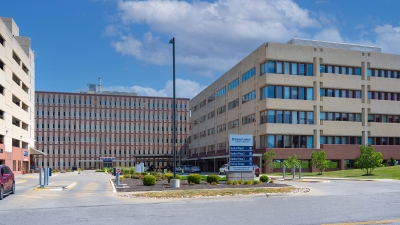Robotized Surgical Assistant (ROSA)
Our dedicated, state-of-the-art, neurological operating suites are outfitted with the latest technology including the ROSA, (Robotized Surgical Assistant.) This is the most advanced of its kind and Saint Luke’s is one of a handful of hospitals in the region to have this game-changing technology.

Comprised of two main parts, a computer “brain” and a robotic “arm”, ROSA’s computer system helps our neurosurgeons make 3-D maps of a patient’s brain. They can then look at the 3-D images from any angle, and at any depth, like a detailed GPS map that helps them mark the exact areas they need to reach and the best route to the destination.
Using the ROSA, our neurosurgeons place a series of very fine electrodes deep within the brain. The angle of approach is different for each electrode. ROSA’s computer brain and robotic arm, and our neurosurgeons’ expertise combine to make surgery not only successful but much faster for the patient. One study found SEEG procedures performed with robotic assistance were an average of 3 hours and 42 minutes faster than traditional procedures.
The accuracy provided by the ROSA’s robotic arm makes it an ideal platform for neurosurgery – ensuring the instruments are placed in the planned area while avoiding critical structures. ROSA allows many neurosurgical procedures to be performed minimally invasive, often times without needing to shave the entire head.
Saint Luke’s neurosurgeons use the ROSA for surgical treatment of epilepsy and deep brain stimulation for treatment of movement disorders including Parkinson’s Disease and essential tremor.
Learn more about Saint Luke's neurosurgery.
Locations
